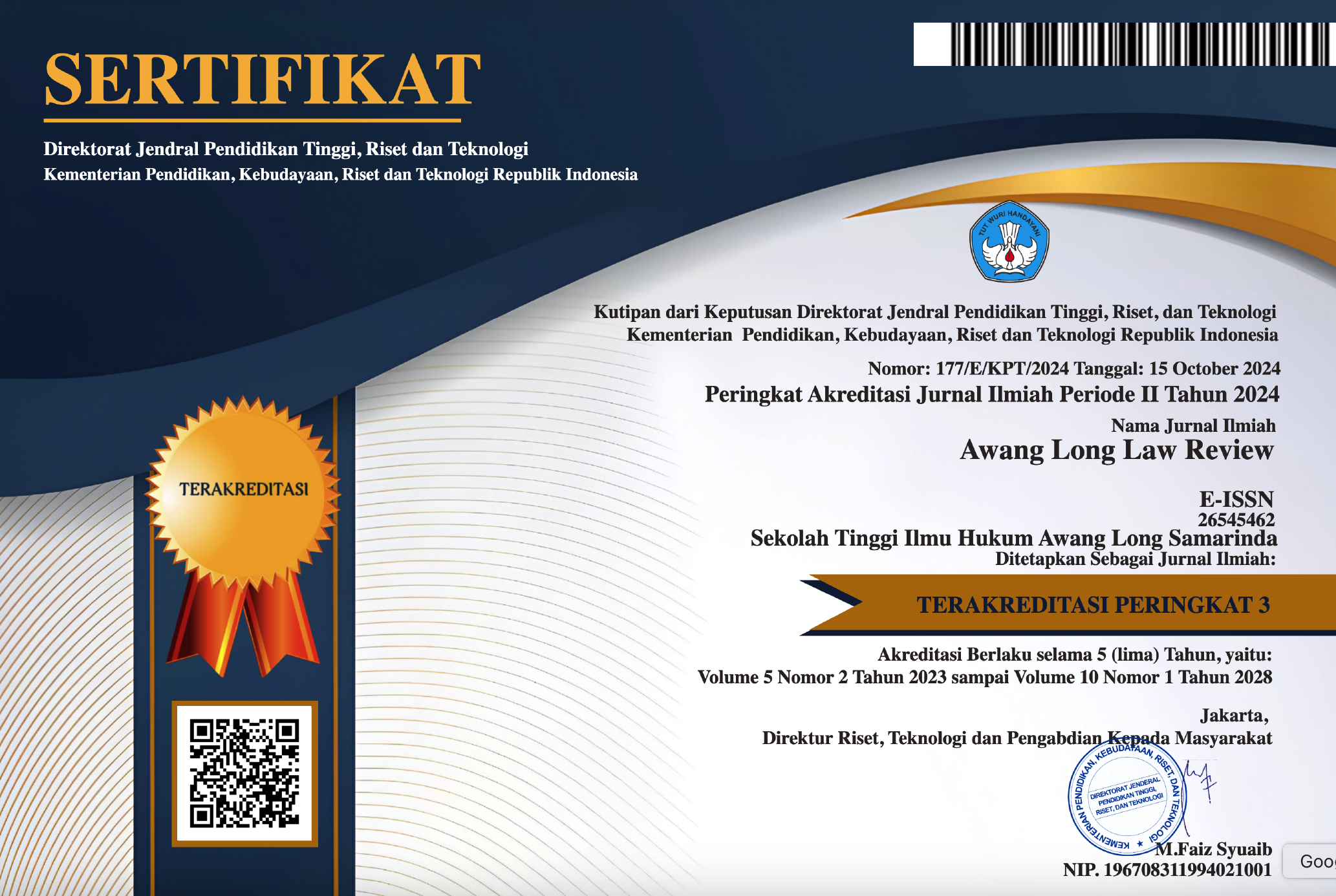THE IMPLEMENTATION OF THE DEATH PENALTY IN CORRUPTION
Abstract
Corruption is an extraordinary crime that has an impact on losses and the country's economy so that it has a negative impact on the welfare and welfare of society. Various criminal sanctions have been imposed on the perpetrators, but these sanctions have not provided a deterrent effect. The emergence of the discourse on capital punishment as an effort to provide a deterrent effect and efforts to prevent corruption raises pros and cons. Those who support capital punishment argue that capital punishment needs to be applied as an effort to protect the welfare of the people. On the other hand, the death penalty violates human rights. Therefore this paper examines the position and role of capital punishment as a sanction against corruption. This study uses a juridical normative method. Capital punishment as a sanction against perpetrators of corruption can be carried out on the condition that the sense of justice in society is fulfilled as a preventive measure. The position of the death penalty is appropriate for the implementation of corruptors as a crime against the sense of justice and detrimental to the fulfillment of the welfare and prosperity of the community.
Downloads
Copyright (c) 2021 Awang Long School of Law

This work is licensed under a Creative Commons Attribution-ShareAlike 4.0 International License.







